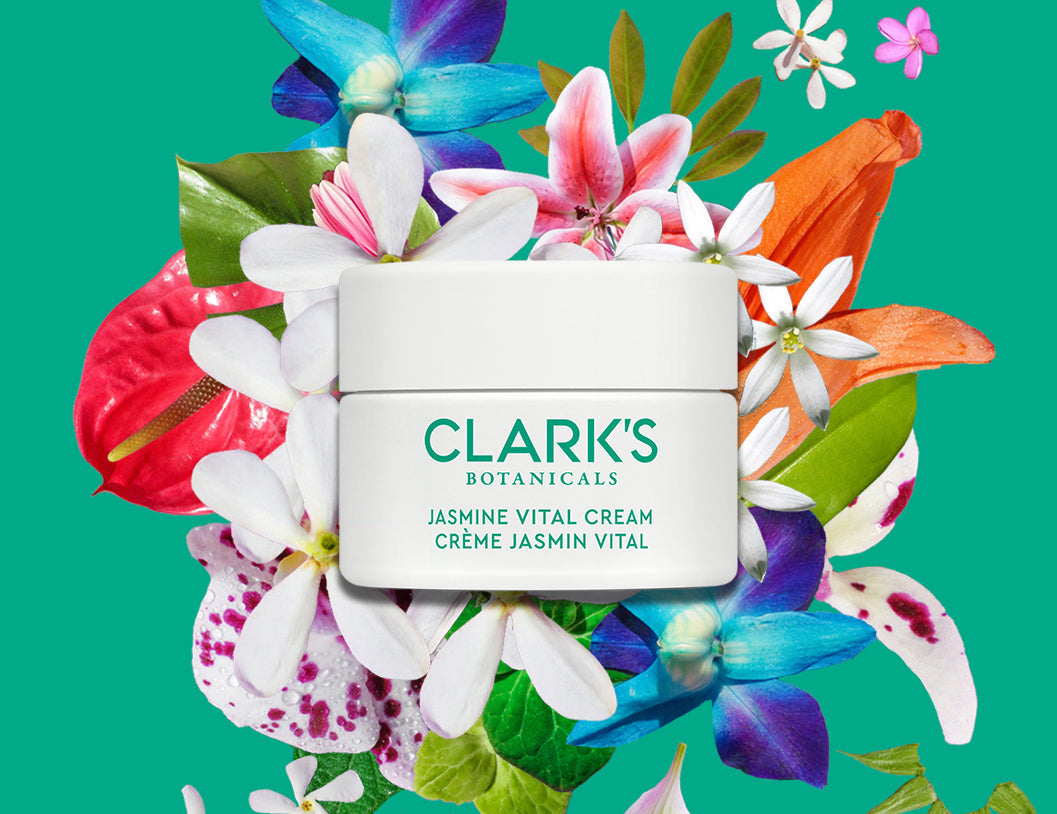
Scentsational Love Story 🤍
Happy National Jasmine Day from Team Clark’s! We love this ‘holiday’ and any reason to get gushy and talk about our favorite flower and one of our favorite love stories - Cleopatra and Marc Antony (swoon).
Known as a commander of ships and hearts, this impressive queen knew a thing or two about ruling her land, her fortunes, her men and her body. She was a legendary seductress and yet - we’re myth-busting here - despite what lore (and Hollywood) would have us all believe, Cleopatra did not possess an unearthly physical beauty (cue Elizabeth Taylor). It’s been assumed that she was abundantly beautiful because of her historic conquests, however, the truth about her is way more interesting. So why the thousands-year hoopla about her face? That’s where her story gets good and why we love her even more.
Her beauty came from a place far more deep and beguiling than classic features or an enviable physique. She’s described as having a character that was bewitching and irresistible. She was highly intelligent, charming and cunning. Educated in mathematics, philosophy, oratory and astronomy and fluent in several languages (possibly as many as a dozen) she rarely needed an interpreter when governing. Consequently, she was able to connect with the various (and often barbaric) populations in her kingdom (queendom?). She had a brilliant imagination and a keen sense of people. She was a marketing guru ahead of her time. In full disclosure, she also likely had a hand (a very strong one aparently) in the murder of three of her siblings. But we prefer not to dwell overmuch on that unsavory asp-ect. Everyone has bad days, right?
From a very young age, she used her talents to maintain and expand her power and by 22 she had seduced Julius Caesar (she had herself wrapped and delivered in a carpet in order to initially meet him) and later gave birth to his only son. Their relationship ended, of course, with the Ides of March. Cleopatra marched away unscathed.
For her second and more famous relationship (and conquest) she pulled out all the theatrical stops. The stakes were high and she needed Marc Antony to protect her crown and maintain Egypt’s independence.
At his initial summons (after making him wait, of course) she traveled from Egypt and made what was probably one of the greatest entrances of all time. She sailed into town adorned as Venus and poised atop a spectacular, gilded barge, laden with gold and flowers. Oarsmen were dressed as cupids and rowed using silver oars and her maidens (dressed as sea nymphs, naturally) attended the sails, which were a magnificent purple. And those purple sails were saturated in perfumed oils, most likely derived from … wait for it, Jasmine flowers. The idea was that Marc Antony would catch her beguiling scent before he laid eyes on her. When it came to flair and self-promotion, she kicked asp. We like to believe it was the Jasmine that cinched the deal.
You might know how this ended -- he was rendered helpless in her presence and left Rome and his family behind for this enchanting genius. They were together for long enough to produce a few little Cleos and Tonys before their famous union ended in a mutual suicide at the threat of a foreign invasion. An affair and an ending so dramatic, Shakespeare hardly needed to embellish it.
Jasmine has quite the history! Beyond our famous (infamous?) friend Cleo, Jasmine has been cultivated and revered around the world and for millenia. Derived from the Persian word, “yasamin” which means “gift from God”, the Jasmine flower releases its fragrance at night and so it is known as the “Queen of the Night.” Our other favorite queen!
Jasmine’s uses have run a large gamut, from skin clearing to cures for stomach ulcers and hepatitis B virus. In Chinese medicine Jasmine flowers are known to “cool” the blood and have strong antibacterial, antiviral and anti-tumor properties. And across the ages it has been relied upon to reduce lactation and increase menstruation. It is used to make a cherished tea and across the world and over time, has served as a symbol of love, peace, harmony, modesty and motherhood. Jasmine oil is popular in aromatherapy and relied upon to improve mood and reduce stress. And It serves as the national flower to several countries.
Clark’s Botanicals was the first to innovate Jasmine to heal the skin. We rely on the potent power of Jasmine as an active base for our age-defying formulations. We engineer the flower’s powerful enzymes into a hypercharged composite that exponentially stimulates the naturally occuring, radically healing, and balancing properties of Jasmine. All hail Jasmine, one of nature’s most storied and celebrated flowers and the core of our botanically-based skin care.



